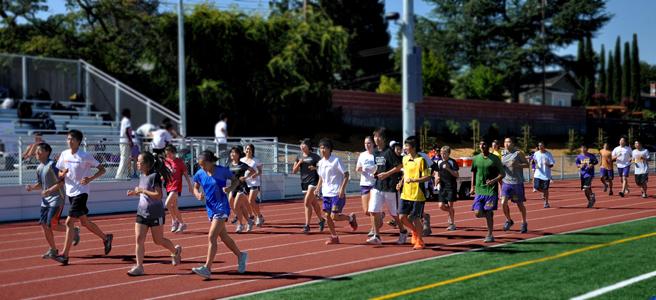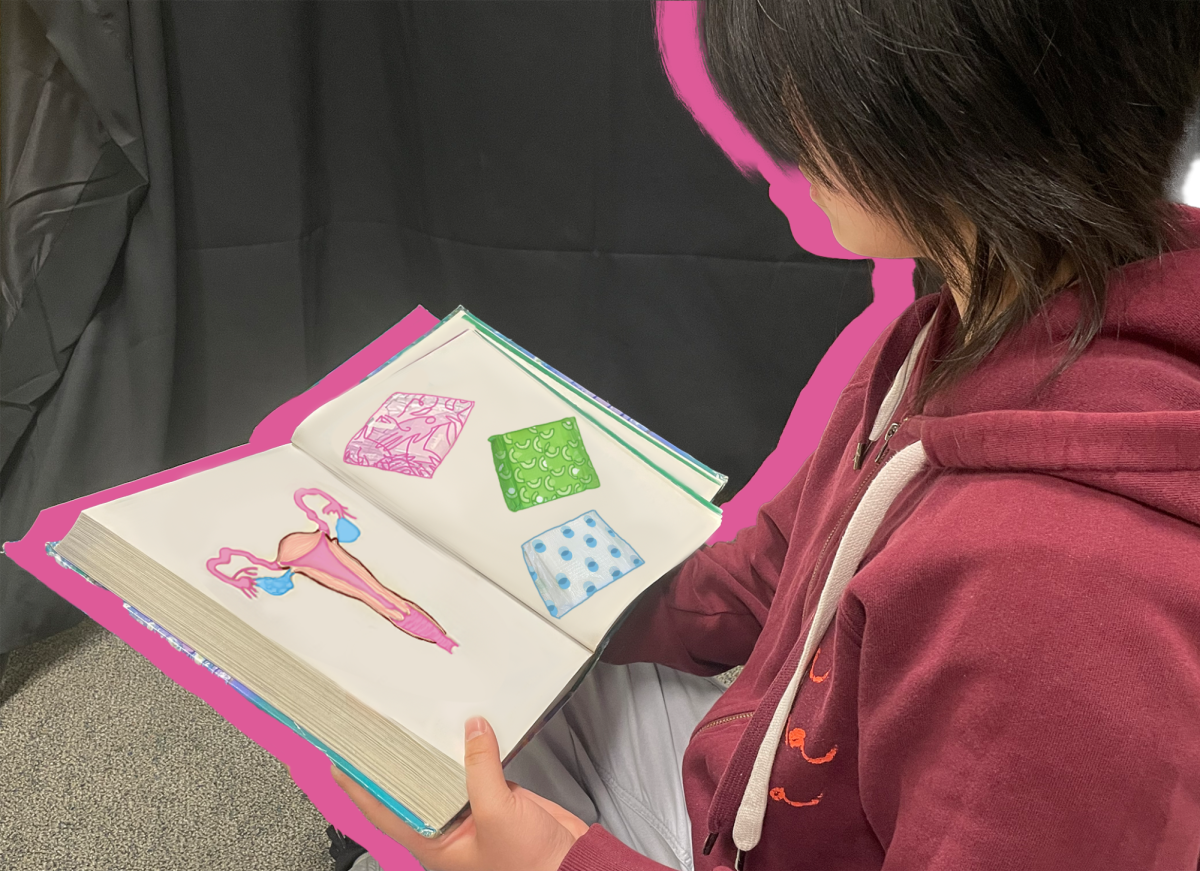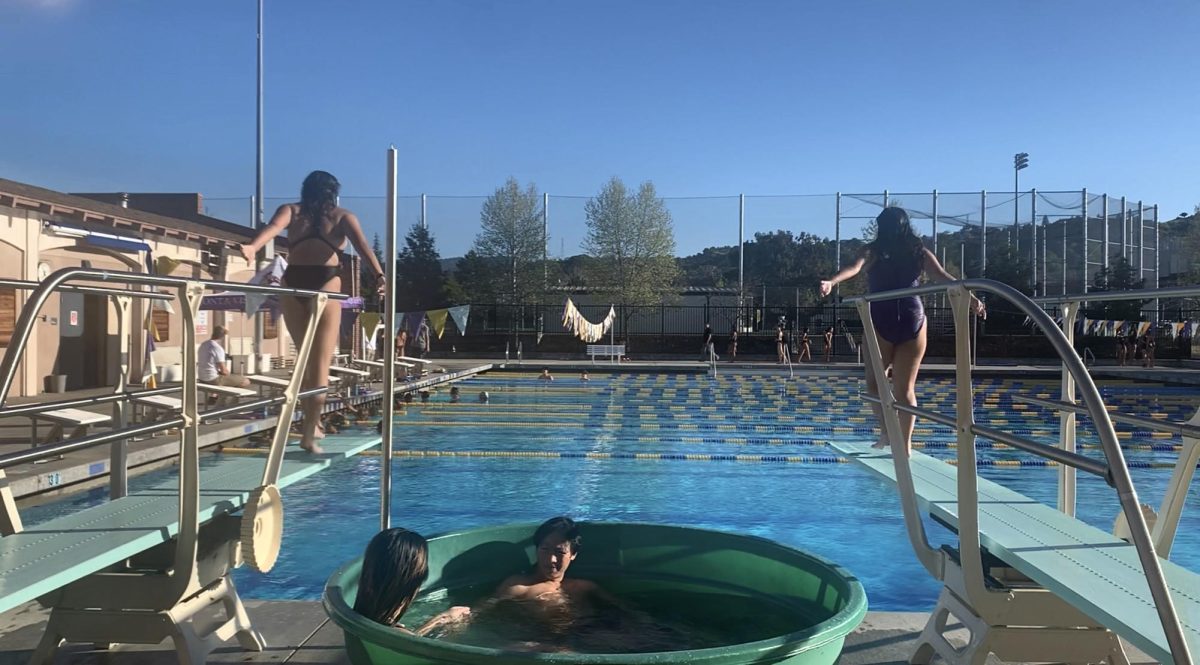
When running on cross country trails, there are no high-fives, no team cheers, no pats on the back. Competitors receive their own times, individual athletes qualify for invitational meets and for the most part, runners seem to run alone.
But ask the members of the MVHS cross country team and they’ll disagree. They believe that even when no one else is in sight on a trail, a runner is never alone. And according to them, cross country isn’t about the fastest runners, or the times, or which individuals on the team win.
“It’s really a family thing,” senior Catalina Huang said. “A lot of people think that cross country is an individual sport because you have to run by yourself. But in reality, each individual has to help make up a score for the overall race… you have to work together to get better.”
In the past four years, the cross country team has had three different coaches – MVHS math teacher Jeff Payne, Jerry Noble and now Kirk Flatow. Members such as Huang, who is currently in her fourth season of cross country, have undergone countless changes in strategy, atmosphere and results but one thing that has not changed, they say, is the fact that they remain a team.
No longer alone
One of the strategies Flatow will emphasize this year is pack running, which he describes as training and running together during practice for better results in meets. According to Flatow, pack running is a widespread strategy among cross country teams. The approach proved to be effective for Carlmont High School, whose cross country team won CCS last season.
“If you’ve been running with your teammates in practice, when your friend takes off, you’re going to think, ‘Hey, I can do this too,'” Flatow said. That encouragement and motivation can make the difference.
According to junior Bridget Gottlieb, pushing limits during pack running to keep up with teammates – especially those with more talent or training – can be mentally tough. In her experience, however, the advantages of pack running have far exceeded the difficulties.
“Sometimes [pack running] is really stressful,” Gottlieb said. “But it pushes [you] a lot because you want to stick with all your other teammates it works pretty well because you continue to push each other to pass other [non-MVHS] people.”
A rebuilding season
Because former cross country seniors such as phenom Kevin Bishop who set multiple school records and was recruited to run for Stanford University graduated in 2012, Flatow says that pulling together will be crucial for success this year, especially for the boys team which has yet to see a standout runner take Bishop’s place. The idea behind the strategy is not to slow down to wait for others; rather, it’s to motivate others to keep up with those who may run faster on a certain day, shaving seconds or even minutes off individual times and therefore boosting team scores. And according to Flatow, none of the cross country members seem to have reservations about pack running. Instead, Flatow believes that the strategy has actually helped the MVHS team become more competitive compared to other schools.
“With cross country, it’s not just [about] how the first runner finishes,” Flatow said. “The fifth runner can determine whether [the team] wins or loses it’s about where the pack falls compared to everyone else.”
Minor changes have also helped create a tight-knit group of all the runners, one which Flatow says is one of the best he has worked with. Members of the cross country team credit Flatow with investing time and money into ensuring that the runners have the best possible environment to train and compete in. Seminars with Olympic athletes and coaches, for example, give runners perspective on cross country as a professional sport.
Because success in cross country depends largely on runners’ ability to mentally push past pain event races are often several miles long the members of the team emphasize that the support they receive from one another is crucial to the team’s performance. While MVHS runners do in fact compete against one another for individual placement, they view each other not as competitors but as motivation for improvement.
“If there’s someone in front of [me], I’m not thinking anger,” Flatow said. “I’m thinking, ‘I need to beat them.’ Even if I can’t, it’s made me try as hard as I could … really, that person is a gift.”
All the time spent together, supporting, encouraging, motivating, is evident as each runner crosses the finish line.
“At the end of a race, everyone cheers for each other and it really encourages everyone to run a lot harder,” Gottlieb said. “[It’s] like the entire team [is] pulling you along.”
And though this is only Flatow’s second year coaching the Matadors, he sees bright futures not only for the individual runners but also for the entire cross country program at MVHS.
“They help, admire and support each other… it’s their team. They’re building it,” Flatow said. “We’re evolving as a group and as a family.”



















